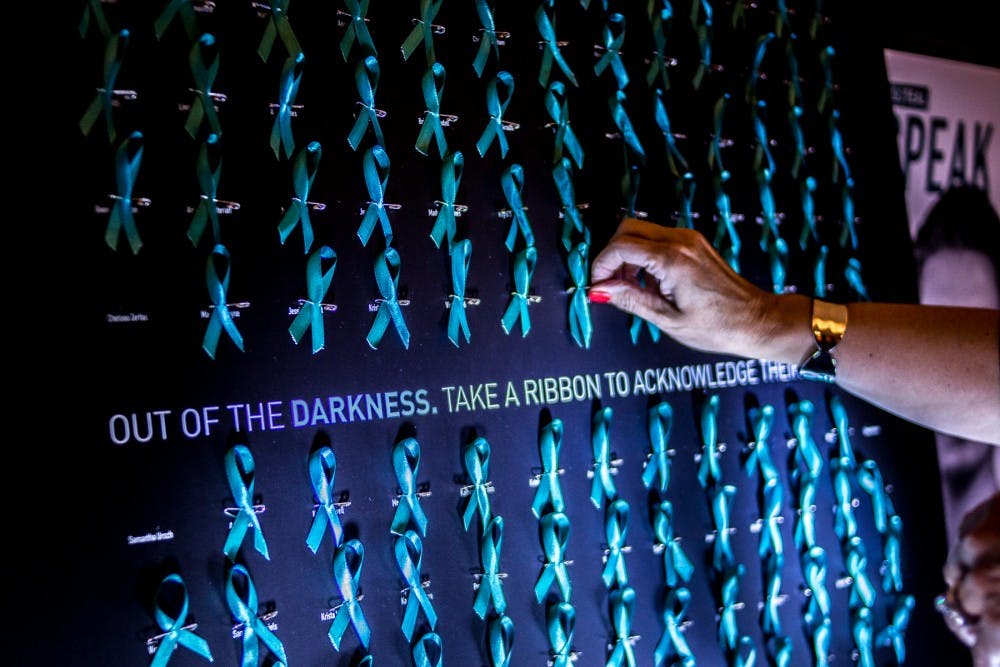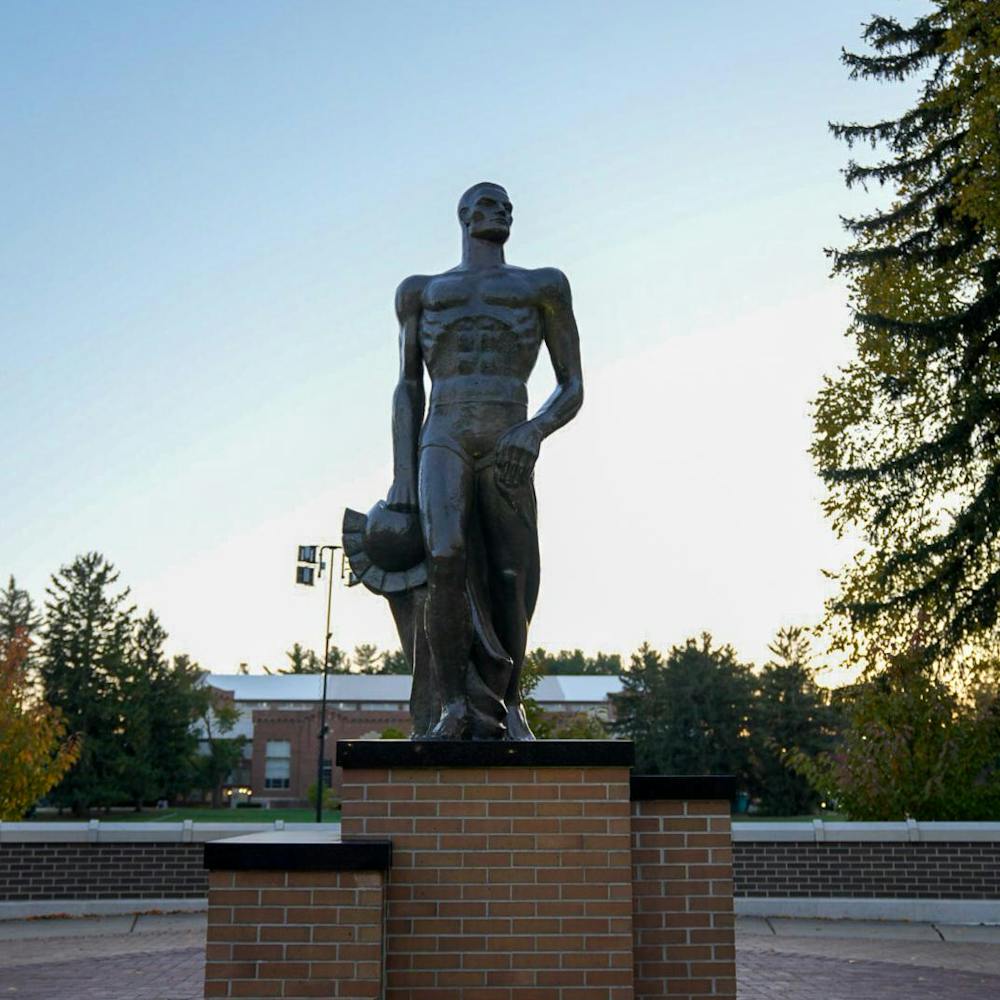When a story breaks that an instance of reported sexual assault is deemed not true, it is a relief because no one wants to believe that these things are happening, Teresa Mastin, chairperson of advertising and public relations for the College of Communication Arts and Sciences, said at a panel event titled "Theorizing the Senate Hearings," which was held on Tuesday night at the MSU Museum.
The panel was designed to bring awareness to sexual assault through having conversations about whose voices are being heard, whose voices are being suppressed and how to deal with sexual assault on an emotional level.
Members of the panel include the aforementioned Teresa Mastin; Tamara Butler, an English professor at MSU; Soma Chaudhuri, a Sociology professor at MSU and Melissa Hudecz; a survivor of sexual assault.
During the Brett Kavanaugh Senate hearings, sexual assault was at the forefront of the conversation in light of allegations brought against Kavanaugh by Dr. Christine Blasey Ford.
During these hearings, Dr. Ford was required to testify, where she was “poised, professorial and factual,” Soma Chaudhuri said.
Those on the panel often drew references to the 1991 Senate hearings where Anita Hill’s accusations on Judge Clarence Thomas were under fire.
In comparing the Senate hearings of 1991 and 2018, Mastin brought up how poorly Anita Hill was treated and how Dr. Ford was treated more nicely. But that amount of kindness was only surface level, she said.
The panel said if the women had used more emotions in their testimony, it would have been deemed less credible. Chaudhuri said the emotions displayed by Judge Kavanaugh during his hearing made him look “like a train wreck,” but no one batted an eye.
“With this discussion on emotion and how women are perceived, especially survivors and their credibility, I think it is important to know that as people process one of the pieces of processing is to be numb,” Hudecz said. “You can’t only numb the negative emotions. When you numb the negatives, you are also numbing the capacity ... to be happy.”
Before the event was opened up for questions from the audience, Hudecz said the issue of sexual assault isn’t a partisan political issue, but rather a social issue that needs to combated.
While the panel was on the topic of silencing groups of people, a member of the audience said, during protests and rallies last year, a group of women of color were marching and were silenced by others who said the event was a “women’s issue” and not the time to be bringing race into the conversation.
Butler questioned how everyone can be heard instead of only some groups of people.
“It's a question that this university has been struggling with nonstop," Butler said. "No one is here to play Oppression Olympics, but there is a reality that we have to deal with, and the reality is that there are students and survivors on campus who are dealing with sexual assault by people who are not in the lime light.”
There are countless students who don’t feel they should tell their story because it will never make the news, Butler said.
Hudecz said she, along with the other members of the Sister Survivors, are aware their story was heard because of their privilege.
A member of the audience choked back tears while phrasing her question about how women can combat the stigma of being sexually assaulted and how not to be afraid to come forward.
A different member of the audience weighed in on the question by saying she thinks the best way to eliminate the stigma surrounding sexual assault is to bring up the conversation before students get to college.
She said human connection could be one way of bringing down the stigma of being a sexual assault survivor and being able to talk about it in an open setting would help many people who are dealing with the numbness of the trauma.
Support student media!
Please consider donating to The State News and help fund the future of journalism.
Discussion
Share and discuss “Theorizing the Senate Hearings discusses current conversations about sexual assault ” on social media.







